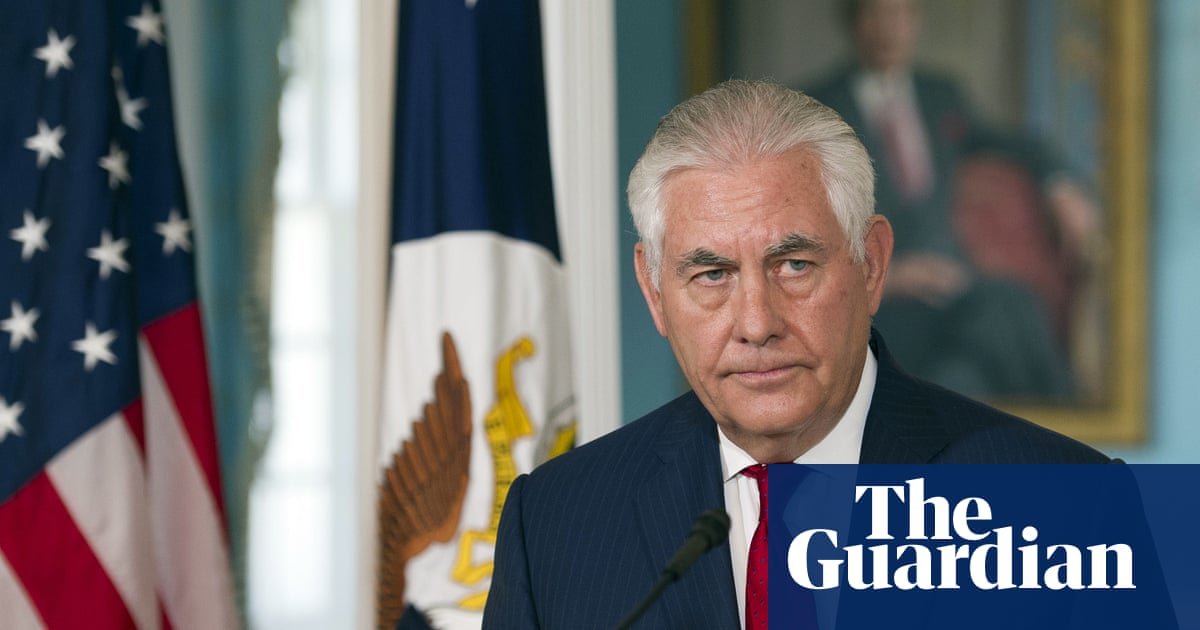

ExxonMobil executives privately sought to undermine climate science even after the oil and gas giant publicly acknowledged the link between fossil fuel emissions and climate change, according to previously unreported documents revealed by the Wall Street Journal.
The new revelations are based on previously unreported documents subpoenaed by New York’s attorney general as part of an investigation into the company announced in 2015. They add to a slew of documents that record a decades-long misinformation campaign waged by Exxon, which are cited in a growing number of state and municipal lawsuits against big oil.
Many of the newly released documents date back to the 2006-16 tenure of former chief executive Rex Tillerson, who oversaw a major shift in the company’s climate messaging. In 2006, Exxon publicly accepted that the climate crisis posed risks, and it went on to support the Paris agreement. Yet behind closed doors, the company behaved differently, the documents show.
In 2008, Exxon pledged to stop funding climate-denier groups. But that very same year, company leadership said it would support the company in directing a scientist to help the nation’s top oil and gas lobbying group write a paper about the “uncertainty” of measuring greenhouse gas emissions.
The company’s preoccupation with climate uncertainty continued. Before one meeting with company scientists in 2012, one researcher expressed an interest in finding “‘skeptic’ arguments that we consider to be not yet disproven”. During a board meeting about climate science and policy that same year, the Exxon board member Peter Brabeck-Letmathe, who is the former chief executive of Nestlé, said there was “still uncertainty in predicting future climate changes and impacts” and also said that “money and effort spent on climate change is misplaced”.
The documents also show Exxon’s displeasure with scientific warnings from top authorities. After the Intergovernmental Panel on Climate Change, the United Nations’ top climate body, sounded the alarm about the urgent need to curb greenhouse-gas emissions in 2011, Tillerson told a leading Exxon researcher that the IPCC’s warning was “not credible”, and said he was “dissatisfied” with the media’s coverage of the warning about the worst-case climate scenarios.
Tillerson also wanted to engage with the scientists “to influence [the group], in addition to gathering info”, the Exxon researcher told colleagues in a 2012 email about the findings.
Years later, Tillerson expressed doubt about the United Nations’ Paris accord months before it was signed. The international agreement aims to keep global heating “well below” 2C over pre-industrial temperatures.
After a climate science presentation to Exxon’s board of directors in April 2015, Tillerson called the 2C goal “something magical”, according to a summary of the meeting.
“Who is to say 2.5 is not good enough?” he said, noting that meeting such targets would be “very expensive”.
That December, Exxon publicly endorsed the Paris agreement; during his Senate confirmation hearing to become secretary of state in 2017 under President Trump, Tillerson maintained his support for it.
after newsletter promotion
When asked by the Journal about the new documents, the Exxon chief executive, Darren Woods, said: “When taken out of context, it seems bad.”
“But having worked with some of these colleagues earlier in my career, I have the benefit of knowing they are people of good intent,” he said. “None of these old emails and notes matter, though. All that does is that we’re building an entire business dedicated to reducing emissions – both our own and others’ – and spending billions of dollars on solutions that have a real, sustainable impact.”
Tillerson declined to comment, the Wall Street Journal said.
The documents could bolster legal efforts to hold oil companies accountable for their alleged attempts to sow doubt about climate science. More than two dozen US cities and states are suing big oil, claiming the industry knew for decades about the dangers of burning coal, oil and gas but hid that information.
In July, progressive senators led by Vermont’s Bernie Sanders also urged the justice department to sue oil majors for allegedly violating US consumer protection laws, racketeering laws, and other legal standards.
 Print
Print




